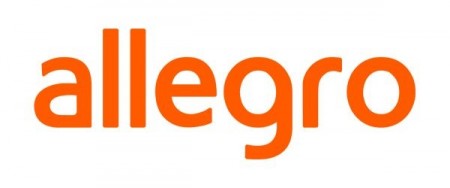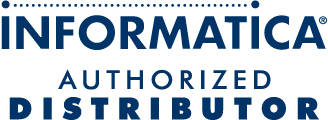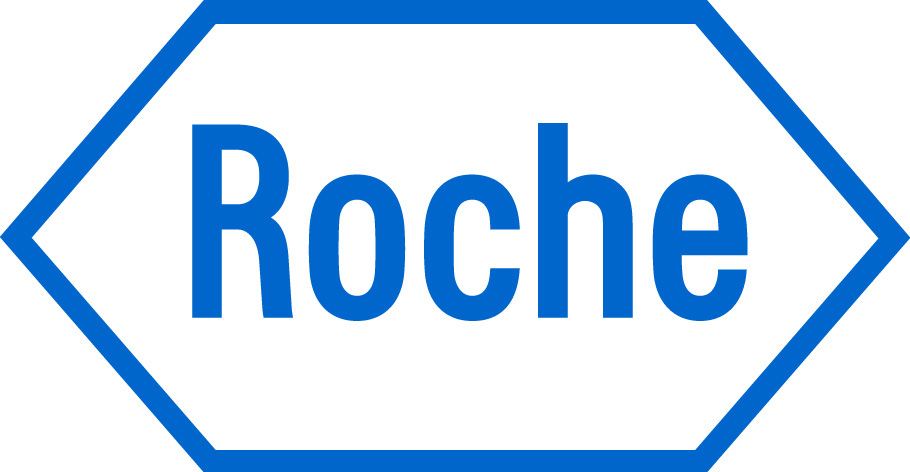III Krajowa Konferencja Naukowa Technologie Przetwarzania Danych - KKNTPD 2010
21-23.06.2010, Poznań
Politechnika Poznańska, Instytut Informatyki
WYKŁADOWCY Z ZAGRANICY (INTERNATIONAL SPEAKERS)
Dr. Morten Middelfart, Targit
Abstract: This talk demonstrates so-called sentinels in the TARGIT BI Suite. Sentinels are novel rule-based warnings that warn a user if one or more measure changes are expected to cause a change to one of the user's critical success factors within a certain period. In the demo we show that users, without any prior technical knowledge, are able to find and use strong and specific sentinels (compared to sequential patterns and correlation techniques) in order to react much faster to the real world challenges of their organizations.
Short bio: In 1996 Morten Middelfart established a successful BI company, which, in 1997, was acquired by TARGIT who hired him as CTO. His key mission is to redefine the term "user-friendliness" within BI software and Morten's work has lead to several patents. Morten finished his first Ph.D. by publishing his book about Computer Aided Leadership and Management (CALM) which sets the agenda in university lectures. He is currently working on his second Ph.D. titled "Optimizing Business Intelligence with the OODA Framework".
Dr. Gabriella Kazai, Microsoft Research Cambridge
"Information and Activity Management with Tags, Maps, and Summaries"
Abstract: Tagging has been embraced in a wide range of online and desktop applications as a way of describing and organising documents and other media. However, we are now faced with the challenge of managing documents stored in multiple locations or accessed from a variety of online services, including social media sites such as Flickr, Facebook, LinkedIn, YouTube and similar. There is currently no easy way to keep related documents together and view them in a coherent and unified way. Starting from the perspective of researchers in various areas, we designed a desktop-based tool for tagging documents in order to keep all the relevant information together. While working, users can tag their documents, e-mail messages, online resources and media collections, and have them all easily accessible during their activities. This reduces the overhead of browsing and recurrent use of documents from disparate collections. In addition, the system collects rich metadata about both the content and the context in which the documents were collected. It exposes this information in various authoring tools and enables users to create rich and meaningful views of the collected data in the form of maps and summaries. These can be purposefully created to facilitate discussion and knowledge exchange, or as a means to facilitate sense-making and learning. In this talk, I will describe our tagging tool, the principles that shaped its design, and detail the findings of a user study, examining how the information and activity management practices of users is supported and affected by the tool.
Short bio: Gabriella Kazai is an Associate Researcher with the Integrated Systems team at Microsoft Research Cambridge, working on development of designs and technologies for natural and effective use of computer technology. Gabriella?s research interests include design and evaluation of systems for structured document retrieval, book search, and personal digital library. Gabriella is the organizer of the Book Track at the INEX evaluation initiative, which investigates full-text searching over digitized books and studies users? interactions with e-books. Her PhD work at Queen Mary, University of London covered the evaluation of XML information retrieval.
Dr. Morten Middelfart, Targit
Abstract: This talk demonstrates so-called sentinels in the TARGIT BI Suite. Sentinels are novel rule-based warnings that warn a user if one or more measure changes are expected to cause a change to one of the user's critical success factors within a certain period. In the demo we show that users, without any prior technical knowledge, are able to find and use strong and specific sentinels (compared to sequential patterns and correlation techniques) in order to react much faster to the real world challenges of their organizations.
Short bio: In 1996 Morten Middelfart established a successful BI company, which, in 1997, was acquired by TARGIT who hired him as CTO. His key mission is to redefine the term "user-friendliness" within BI software and Morten's work has lead to several patents. Morten finished his first Ph.D. by publishing his book about Computer Aided Leadership and Management (CALM) which sets the agenda in university lectures. He is currently working on his second Ph.D. titled "Optimizing Business Intelligence with the OODA Framework".
Dr. Gabriella Kazai, Microsoft Research Cambridge
"Information and Activity Management with Tags, Maps, and Summaries"
Abstract: Tagging has been embraced in a wide range of online and desktop applications as a way of describing and organising documents and other media. However, we are now faced with the challenge of managing documents stored in multiple locations or accessed from a variety of online services, including social media sites such as Flickr, Facebook, LinkedIn, YouTube and similar. There is currently no easy way to keep related documents together and view them in a coherent and unified way. Starting from the perspective of researchers in various areas, we designed a desktop-based tool for tagging documents in order to keep all the relevant information together. While working, users can tag their documents, e-mail messages, online resources and media collections, and have them all easily accessible during their activities. This reduces the overhead of browsing and recurrent use of documents from disparate collections. In addition, the system collects rich metadata about both the content and the context in which the documents were collected. It exposes this information in various authoring tools and enables users to create rich and meaningful views of the collected data in the form of maps and summaries. These can be purposefully created to facilitate discussion and knowledge exchange, or as a means to facilitate sense-making and learning. In this talk, I will describe our tagging tool, the principles that shaped its design, and detail the findings of a user study, examining how the information and activity management practices of users is supported and affected by the tool.
Short bio: Gabriella Kazai is an Associate Researcher with the Integrated Systems team at Microsoft Research Cambridge, working on development of designs and technologies for natural and effective use of computer technology. Gabriella?s research interests include design and evaluation of systems for structured document retrieval, book search, and personal digital library. Gabriella is the organizer of the Book Track at the INEX evaluation initiative, which investigates full-text searching over digitized books and studies users? interactions with e-books. Her PhD work at Queen Mary, University of London covered the evaluation of XML information retrieval.
WYKŁADY ZAPROSZONE
Adaptive Indexing: Goetz Graefe,
Hewlett-Packard Laboratories
Johann Eder
Alpen-Adria Klagenfurt University (Austria)
WYKŁADOWCY Z ZAGRANICY
Morten Middelfart, Targit
Gabriella Kazai, Microsoft Research Cambridge
WYKŁADOWCY Z BIZNESU
Rafał Kudliński, BI Manager, QXL Poland
Artur Wroński, IBM Polska
Piotr Skowroński, Informatica
PROGRAM KONFERENCJI ...>>>
WAŻNE DATY
04.05.2010 - nadsyłanie artykułów do recenzji
23.05.2010 - informacja o wynikach recenzji
31.05.2010 - nadsyłanie poprawionych artykułów do publikacji
NADSYŁANIE ARTYKUŁÓW
Akceptowane są artykuły w języku polskim lub angielskim o maksymalnej objętości 12 stron formatu KKNTPD2010. Artykuły do recenzji należy nadsyłać w PDF, a do książki i czasopism w LaTeX, za pośrednictwem systemu EasyChair. Styl LaTeX KKNTPD2010 można pobrać tutaj. Styl KKNTPD2010 jest stylem, który powinien być uzywany razem z klasą dokumentu LLNCS, którą można pobrać tutaj. Style LaTeX dla czasopism zostaną umieszczone na tej stronie w terminie poźniejszym.
------ CAMERA READY ------
Artykuły w wersji Camera Ready powinny być przygotowane zgodnie ze stylem latex KKNTPD 2010 do 31.05.2010 . Artykuły pełne mogą mieć do 15 stron długości. Artykuły krótkie do 10 stron. Razem z artykułami trzeba przysłać zeskanowaną zgodę na publikację zgodną z formularzem tutaj.
MATERIAŁY KONFERENCYJNE
Przyjęte artykuły zostaną opublikowane jako rozdziały w książce wydawnictwa WNT (3 pkt. ministerialne). Część najlepszych artykułów zostanie wydana po konferencji w czasopiśmie Foundations of Computing and Decision Sciences (6 pkt. ministerialnych), a część w Control & Cybernetics (lista filadelfijska, 15 pkt. ministerialnych). Uwaga: do wspomnianych czasopism będą wymagane artykuły w j. angielskim.
PREZENTACJE
Wymagania dotyczące prezentacji:
- czas trwania 25 min + 5 min na pytania
- język polski lub angielski
- szablon prezentacji dowolny
OPŁATY KONFERENCYJNE
Uwaga: nowa wersja formularza rejestracyjnego ...>>>
MIEJSCE KONFERENCJI ...>>>
KONTAKT
Sekretariat Konferencji TPD'2010
Politechnika Poznańska
Instytut Informatyki
ul. Piotrowo 2
60-965 POZNAŃ
NIP: 777-00-03-699
Tel.: 061 665 29 52
Fax.: 061 877 15 25
Adaptive Indexing: Goetz Graefe,
Hewlett-Packard Laboratories
Johann Eder
Alpen-Adria Klagenfurt University (Austria)
WYKŁADOWCY Z ZAGRANICY
Morten Middelfart, Targit
Gabriella Kazai, Microsoft Research Cambridge
WYKŁADOWCY Z BIZNESU
Rafał Kudliński, BI Manager, QXL Poland
Artur Wroński, IBM Polska
Piotr Skowroński, Informatica
PROGRAM KONFERENCJI ...>>>
WAŻNE DATY
04.05.2010 - nadsyłanie artykułów do recenzji
23.05.2010 - informacja o wynikach recenzji
31.05.2010 - nadsyłanie poprawionych artykułów do publikacji
NADSYŁANIE ARTYKUŁÓW
Akceptowane są artykuły w języku polskim lub angielskim o maksymalnej objętości 12 stron formatu KKNTPD2010. Artykuły do recenzji należy nadsyłać w PDF, a do książki i czasopism w LaTeX, za pośrednictwem systemu EasyChair. Styl LaTeX KKNTPD2010 można pobrać tutaj. Styl KKNTPD2010 jest stylem, który powinien być uzywany razem z klasą dokumentu LLNCS, którą można pobrać tutaj. Style LaTeX dla czasopism zostaną umieszczone na tej stronie w terminie poźniejszym.
------ CAMERA READY ------
Artykuły w wersji Camera Ready powinny być przygotowane zgodnie ze stylem latex KKNTPD 2010 do 31.05.2010 . Artykuły pełne mogą mieć do 15 stron długości. Artykuły krótkie do 10 stron. Razem z artykułami trzeba przysłać zeskanowaną zgodę na publikację zgodną z formularzem tutaj.
MATERIAŁY KONFERENCYJNE
Przyjęte artykuły zostaną opublikowane jako rozdziały w książce wydawnictwa WNT (3 pkt. ministerialne). Część najlepszych artykułów zostanie wydana po konferencji w czasopiśmie Foundations of Computing and Decision Sciences (6 pkt. ministerialnych), a część w Control & Cybernetics (lista filadelfijska, 15 pkt. ministerialnych). Uwaga: do wspomnianych czasopism będą wymagane artykuły w j. angielskim.
PREZENTACJE
Wymagania dotyczące prezentacji:
- czas trwania 25 min + 5 min na pytania
- język polski lub angielski
- szablon prezentacji dowolny
OPŁATY KONFERENCYJNE
Uwaga: nowa wersja formularza rejestracyjnego ...>>>
MIEJSCE KONFERENCJI ...>>>
KONTAKT
Sekretariat Konferencji TPD'2010
Politechnika Poznańska
Instytut Informatyki
ul. Piotrowo 2
60-965 POZNAŃ
NIP: 777-00-03-699
Tel.: 061 665 29 52
Fax.: 061 877 15 25






